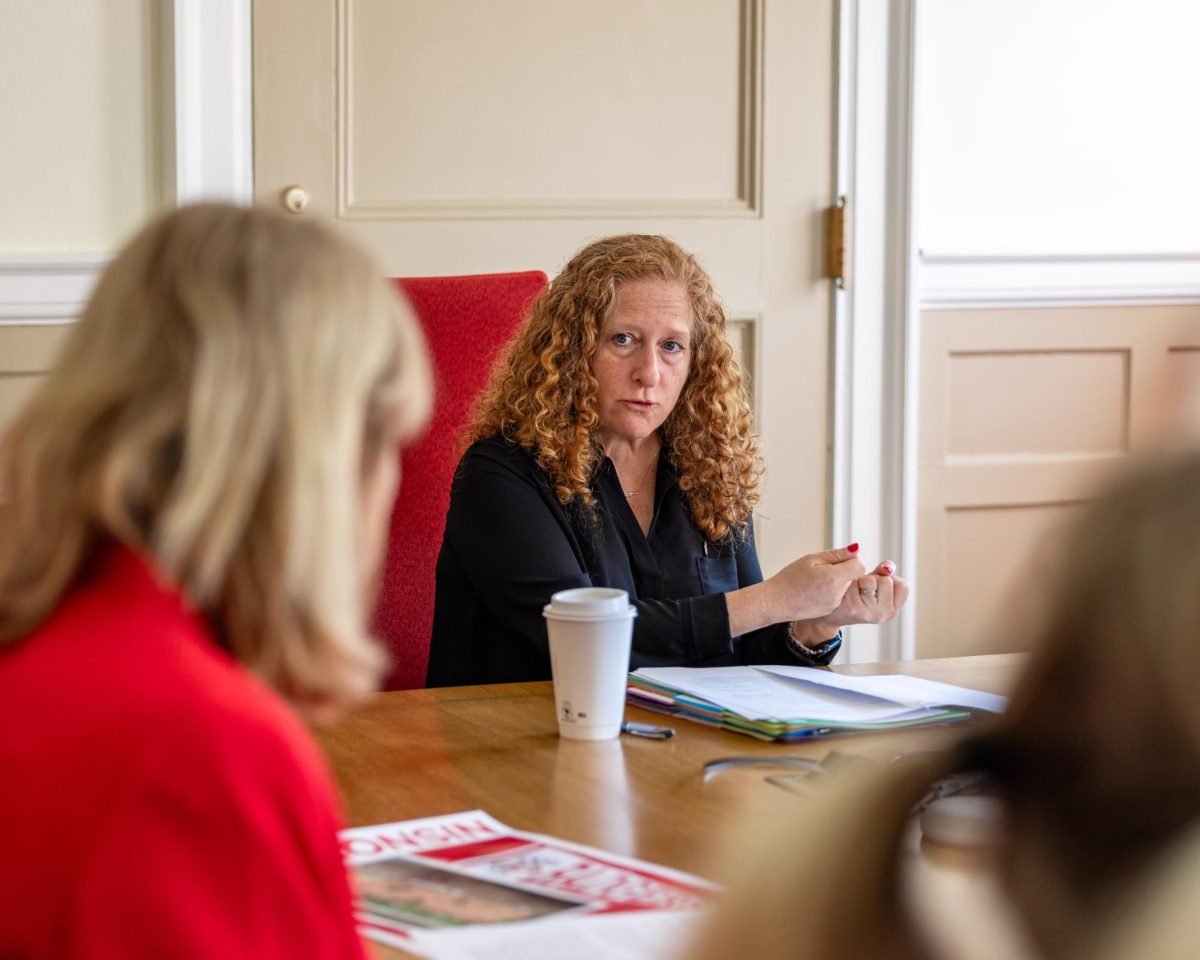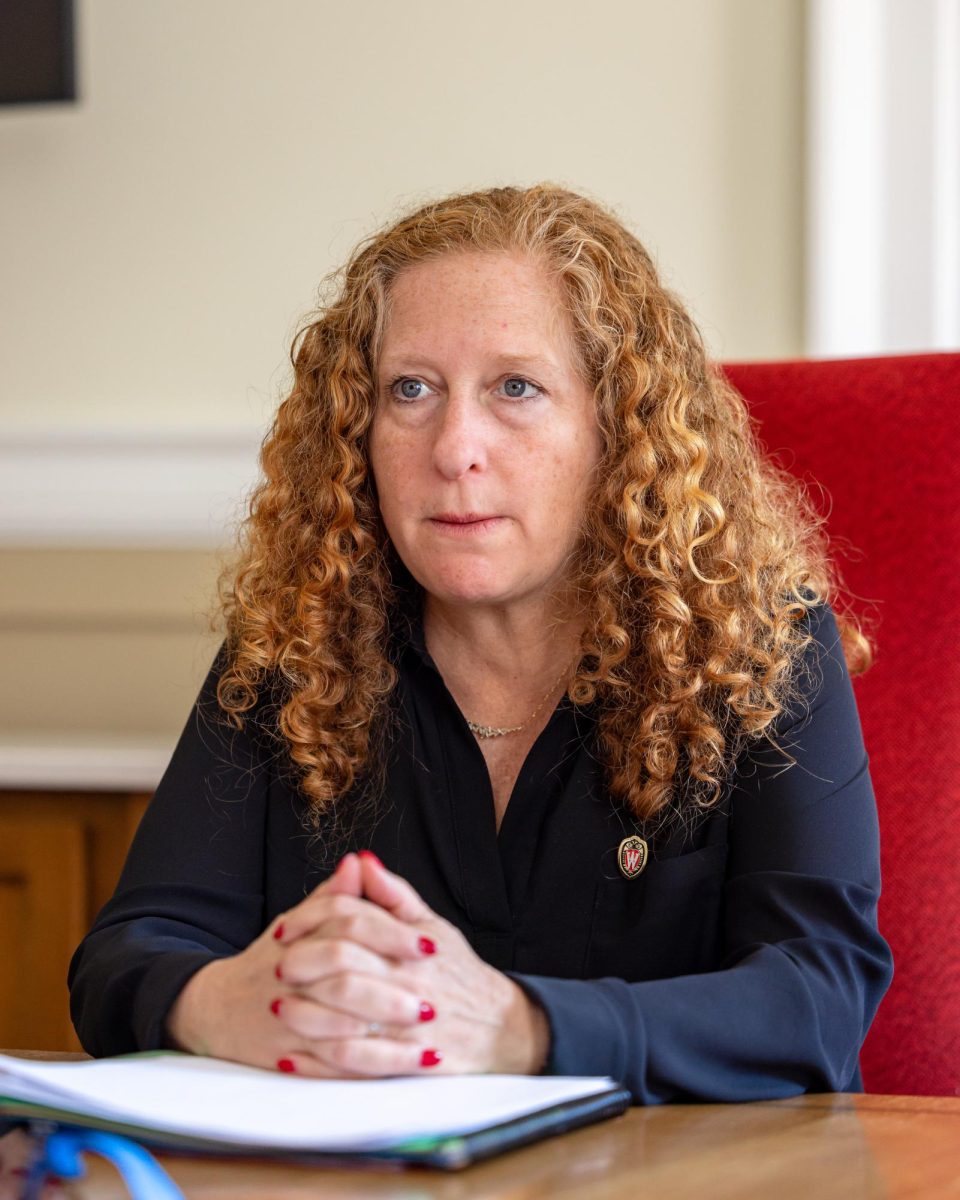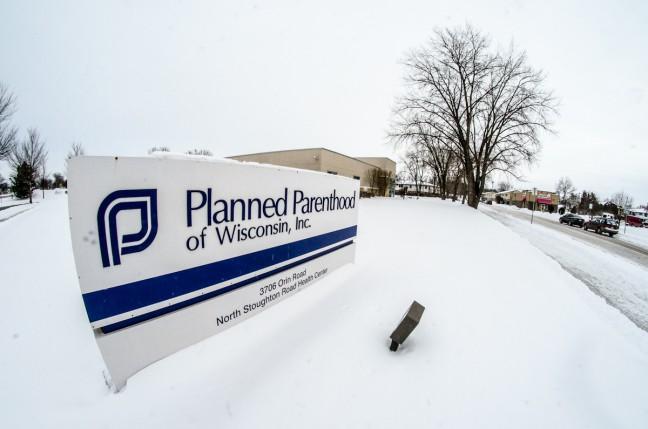University of Wisconsin Chancellor Jennifer Mnookin and Vice Chancellor for Student Affairs Lori Reesor hosted a media roundtable with student journalists Tuesday. Updates on campus initiatives, financial and housing needs and free expression were prominent in the discussion.
Mnookin addresses poor free speech ranking, free expression policy
Mnookin began by acknowledging various campus sentiments regarding the ongoing war in the Middle East, iterating that UW’s goals are to balance free expression and create an environment where all feel a sense of belonging.
While emphasizing the importance of fostering dialogue between opposing groups, Mnookin brought up Deliberation Dinners, a pilot program started last year whose purpose is to “provide UW-Madison undergraduate students the opportunity to engage in meaningful discussions about important political issues in a setting that exposes them to multiple and competing ideas,” according to the Deliberation Dinners website.
As UW plans to initiate a new policy on addressing current issues, members of the university community can expect UW to make fewer statements on global events and politics, Mnookin said. Mnookin believes this change could expand an individual’s capacity to express their opinion.
“The institution should be careful about not chilling the speech of others by taking positions in spaces,” Mnookin said. “It’s probably healthier when the institution doesn’t actually have a position.”
In the Foundation for Individual Rights and Expression and College Pulse’s 2025 free speech ranking, UW-Madison ranked 227th out of the 251 schools surveyed — a ranking based on undergraduate students’ low comfort expressing ideas and tendencies to self-censor.
“I think the ranking does not accurately capture our institutional commitments,” Mnookin said. “Rankings of these kind need to be taken with a grain of salt, and I say that even when we do really well.”
FIRE is also one of the organizations the university recently partnered with to launch its new required Free Expression module on protest rights for incoming students.
These are part of UW’s efforts to make guidelines on protest and expressive activities clear and transparent for students, Mnookin said.
“When protest goes beyond what’s permitted and shades over into things that are not permitted, then there can be consequences for that,” Mnookin said.
Approved budget to go toward constructing new residence hall, demolishing Humanities
Mnookin and Reesor also touched on recent university successes, strategic financial aid programs and student housing solutions. This year, UW had record-breaking graduation statistics, faculty hiring and student applicant pool.
Wisconsin is currently ranked 43rd out of 50 in public funding of colleges and universities, but the approved Universities of Wisconsin budget proposal should help Wisconsin reach the national median in public funding, according to a Universities of Wisconsin Press Release.
Two essential portions of the newly approved budget would go to the demolition of the George L. Mosse Humanities building and the construction of a new residence hall. Both projects still require approval from the Wisconsin State Legislature.
Research suggests living in dorms for the first year of college is associated with higher student success, Mnookin said.
UW is working to ensure financial aid packages realistically account for the high housing costs in Madison. The university is exploring public-private partnerships to address housing needs and encourage students to use off-campus housing resources accessible through the Campus Area Housing Office.














